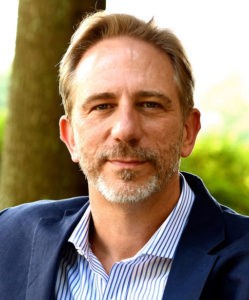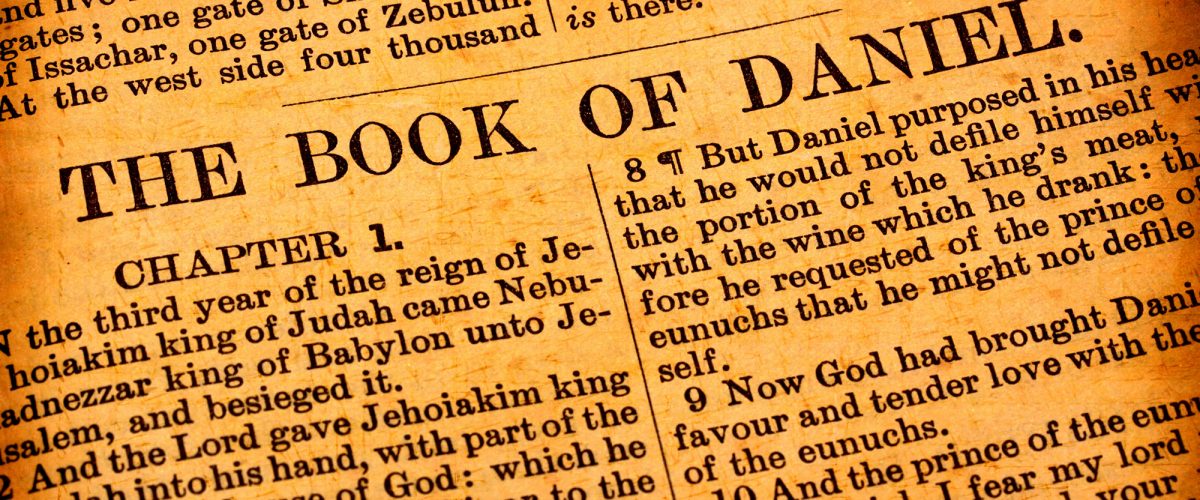In the Christian calendar, the new year begins with the first Sunday of Advent. That is the Sunday just past. Happy Christian New Year, everyone!
If one is thinking in terms of the Christian calendar, then, the new year began on Dec. 3, 2023, and will end on Nov. 30, 2024. That means before the next Advent, the U.S. presidential election will take place. Yes, in that sense, election year is already upon us. Yippee.
For my devotional sustenance, I follow the daily lectionary readings of the Roman Catholic Church. The lectionary exemplifies the laudable, necessary and historic role of the church in curating the reading of Scripture for God’s people. The lectionary offers a balanced diet for the reading of Christian Scripture.

David Gushee
I am regularly struck by the creativity and skill with which the lectionary readings are assembled. The skill is seen in the way in which specific texts (for daily use, three texts — Hebrew Bible/Old Testament, Psalm, and Gospel; for Sunday Mass, an epistle is added) are combined to create a powerful teaching and learning opportunity.
I noticed the lectionary readings leading up to Advent took an interesting turn this year. The Hebrew Bible readings over the last few weeks were from 1 Maccabees and Daniel.
Maccabees, included in the Catholic but not the Protestant canon, tells the story of the coerced Hellenization of the Jewish people in second century BCE Palestine under Greek rule and offers numerous heroic stories of resistance and martyrdom.
Daniel, believed by scholars also to be a very late addition to the Old Testament canon, begins with stories of the refusal of Jewish exiles to assimilate in Babylon, accelerates to various famous stories of tyrants’ threats to their lives and concludes with the heavily symbolic/apocalyptic chapters about the various “immense beasts,” the great world empires and their rulers, judged by the Ancient of Days and the Son of Man.
Meanwhile, the Gospel readings for these weeks took us to the parables and mini-apocalypse of Luke. The last line of the last Gospel reading of the last day of the church year was this: “Be vigilant at all times and pray that you have the strength to escape the tribulations that are imminent and to stand before the Son of Man” (Luke 21:36).
The way the Catholic Church prepared people for Advent this year was to scare the heck out of them with bloody beasts, apocalyptic visions and coming tribulations. It’s not exactly little baby Jesus and jolly old Santa.
Advent means parousia, coming, apocalypse. Advent means God intervening in Jesus to reclaim rule over this bloody mess of a world and its various devouring beasts who bestride this earth.
“Advent means God intervening in Jesus to reclaim rule over this bloody mess of a world and its various devouring beasts who bestride this earth.”
Advent in this kind of world means conflict, not peace, or perhaps better, conflict and then peace — a peace that is not yet, always not quite yet.
Devouring beasts who bestride the earth came to mind last week as I read a terrifying essay by Robert Kagan of the Brookings Institution, a respected historian who writes for the Washington Post. Titled “A Trump Dictatorship is Increasingly Inevitable. We Should Stop Pretending,” Kagan walks carefully through the not unreasonable path from here to a Trump dictatorship:
- He is likely to get the GOP nomination.
- He has at least an even chance of defeating the weakened Joe Biden.
- He appears to have learned how to outmaneuver the legal process and will be even harder to stop as his nomination becomes inevitable.
- He has declared a frighteningly authoritarian agenda should he take office again.
- If he does so, the checks and balances that are supposed to constrain a president are not likely to work this time around. We are talking about a “revenge” agenda involving the abuse of government power to harass, intimidate, surveil, prosecute, bankrupt and imprison his growing list of enemies — just for a start.
Kagan acknowledges in his long article that history is contingent, and the nightmare scenario he is describing is not inevitable.
It is possible but not likely that Ron DeSantis or, better, Nikki Haley, supported by what survives of a GOP mainstream, will defeat Trump in the primaries.
It is possible the courts really will save us — it looks to me that Jack Smith’s federal election-subversion case scheduled for March in D.C. is the best hope there.
It is possible voter turnout driven once again by abhorrence of Trump helps keep him out of office one more time, however narrowly.
Finally, it is possible that if, God forbid, Trump is elected again, the various institutional actors Kagan describes — the federal bureaucracy, the opposition party, the media, the courts, the Congress — might offer more effective resistance to a Trump dictatorship than Kagan currently envisions.
These four rescues are possible. But it is also possible that, in part powered by authoritarian reactionary Christians who love Donald Trump and are happy with his agenda, we will indeed get the dictatorship Kagan warns us about. And in one sense we will richly deserve it if we get it. Because we will have had every opportunity to prevent it.
“The reality TV star/grifter who began running for office on a lark … has matured into something more like one of those Beasts in Daniel or Revelation.”
This is certain: The reality TV star/grifter who began running for office on a lark a long time ago and once was the butt of condescending jokes has matured into something more like one of those Beasts in Daniel or Revelation. Lacking any moral compass, unendingly driven by resentment and the lust for power, he bestrides our land like a devouring beast, worsening in his malice with every passing day.
I shudder to think we must face another election year with this uniquely awful, uniquely dangerous person at the center of our politics again.
Maybe you are like me in not always being up for another news story about the latest awful threat he has made or for thinking about the torment we will have to go through before we see another Advent. I personally can hardly bear it. I find myself avoiding the news quite often.
But I know this: I will do my best to fight for democracy and the rule of law in this country throughout this coming year. I will be speaking in every available venue about “defending democracy from its Christian enemies,” pleading for us to back away from this authoritarian precipice one more time.
I will do so because it is my duty, as a Christian and as an American. After November, all bets are off. We may face some very different kinds of choices than we have faced before. But this is what I will be doing this year. I hope you will do so as well.
David P. Gushee is a leading Christian ethicist. serves as distinguished university professor of Christian Ethics at Mercer University, chair of Christian social ethics at Vrije Universiteit Amsterdam, and senior research fellow at International Baptist Theological Study Centre. He is a past president of both the American Academy of Religion and the Society of Christian Ethics. His latest book is Introducing Christian Ethics. He’s also the author of Kingdom Ethics, After Evangelicalism, and Changing Our Mind: The Landmark Call for Inclusion of LGBTQ Christians. He and his wife, Jeanie, live in Atlanta. Learn more: davidpgushee.com or Facebook.


